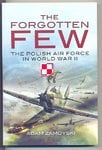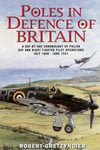evangilder
"Shooter"
I started reading this one a little bit back and have thoroughly enjoyed it. It definitely brings good light into the Polish pilots in the RAF during the BoB. Definitely worth a read.
http://www.amazon.com/dp/037572625X/?tag=dcglabs-20
Last edited:
As an Amazon Associate we earn from qualifying purchases.


